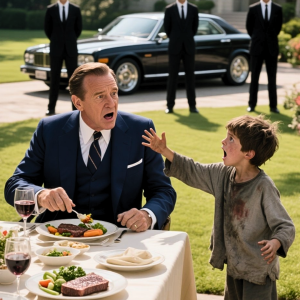
I was twenty-five when I believed I had finally found a man who lived by faith, a man who could make love feel steady instead of sharp.
His name was Jonas Reed. He was twenty-seven, soft-spoken, confident, with that rare kind of calm that makes everyone else go quiet. He had kind eyes, a neat beard, and a voice that always seemed certain. We met at a Bible fellowship in Portland, the kind held in someone’s living room with mismatched chairs and lukewarm tea. From the moment he spoke, quoting verses and steering every topic back to God, people listened. I did too.
Jonas seemed different. He didn’t flirt or joke like other men. He carried himself as if he were already halfway to heaven. I mistook that certainty for goodness. I told myself that discipline was love, that control was safety.
He began showing interest in me after a few weeks. I felt chosen. For the first time in years, I pictured a life with someone who wanted to honor faith as much as I did.
But slowly, devotion turned into instruction.
One Sunday afternoon, he invited me over after service. He handed me tea and a small plate of cookies, then sat across from me, serious and still.
“I want us to build something holy,” he said. “That means we must set boundaries. Guardrails, as Scripture teaches.”
I smiled politely, unsure where this was heading.
“There will be no physical touch before marriage,” he began. “Not even holding hands. Purity is protection.”
I nodded, hesitant but trusting.
“Your clothing should reflect humility. Long skirts, sleeves past the wrist. Modesty honors God and keeps men from stumbling.”
He said it so gently that it almost sounded kind.
“And your makeup,” he added, “let it be simple. Beauty should speak from the soul, not the face.”
Each word folded over me like fabric that was just a little too tight. I tried to breathe inside it.
Then came more. No dinners with male friends. No movies. No music outside the church. “The world corrupts when we invite it in,” he said.
I told myself he was protecting me. That this was faith, not control.
Soon, my world shrank to the size of his approval. I boxed up my favorite jeans and playlists. I stopped attending gatherings that didn’t include him. I laughed less. Every morning, I sent him a verse and prayed aloud with him over the phone. I thought surrendering myself was proof of love.
Once, during a group game, he misread a word from the Bible so badly that I burst out laughing. Everyone laughed with me. But later, in the car, he said quietly, “You drew attention to yourself. A godly woman is gentle, not loud.”
I apologized. I meant it. I was learning to live small.
Months passed. We became engaged. We still had not kissed. When I asked about it, he smiled and said, “We are sacred because we resist temptation.”
I believed him. Until the night everything cracked open.
It was late autumn. I left a friend’s book club early and decided to walk home through the cool air. The community center where Jonas volunteered still had its lights on. Out of habit, I glanced toward the entrance.
And there he was.

Jonas stood under the porch light with another woman, his hands on her waist, his mouth pressed against hers. It wasn’t a mistake or a quick farewell. It was practiced. Familiar. She was the same woman he once called “too flirtatious.”
I stood frozen on the sidewalk. My mind refused to catch up with my eyes. He had preached purity, demanded silence, and built walls around my choices, yet here he was — breaking every rule he wrote.
I walked home without tears. The silence in my apartment was almost kind.
The next morning, I called him. He sounded calm until I said the words: “I saw you.”
He stumbled, then said, “It isn’t what you think. I was weak, and you’ve been distant.”
My breath caught. “Distant? I gave you everything. My voice, my friends, my joy. You told me obedience was love.”
He sighed. “You’re twisting my words.”
That was the moment something in me woke up. “No,” I said softly. “For the first time, I’m hearing them clearly.”
I hung up. I never called again.
A few weeks later, I learned through friends that more women had come forward. Jonas had been asked to step down from his ministry role. I didn’t celebrate. I simply felt free.
One afternoon, his mother came to my door, eyes swollen from crying. “He’s lost,” she whispered. “He needs forgiveness.”
I looked at her gently. “Then I hope he finds it. But I won’t lose myself again to give it.”
That night, I placed my engagement ring in a small box and tucked it away. I made a cup of coffee and played the songs I once deleted — the ones that made me feel alive.
Weeks later, I saw him again in a grocery store. He looked thinner, smaller somehow. “I’ve been praying for a chance to say I’m sorry,” he said.
I nodded. “God forgives those who tell the truth. You might start there.” Then I walked away.
That evening, I cooked for myself — salmon, herbs, and lemon butter, music floating through the apartment. For the first time in years, my laughter filled the room without apology.
Now, there’s someone new. His name is Luca. He listens before he speaks. We pray together because we want to, not because it’s required. He doesn’t tell me how to be holy. He just meets me where I am — whole, imperfect, and free.
Sometimes, when I catch my reflection, I hardly recognize the woman staring back. She’s lighter, louder, and entirely her own.
And when I pray now, I don’t ask for someone to lead me. I thank God for teaching me how to stand.




